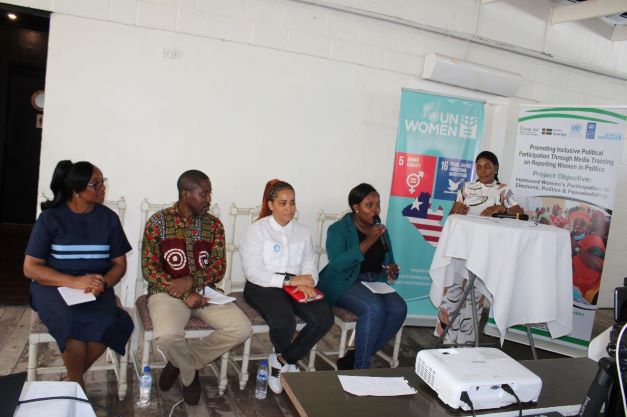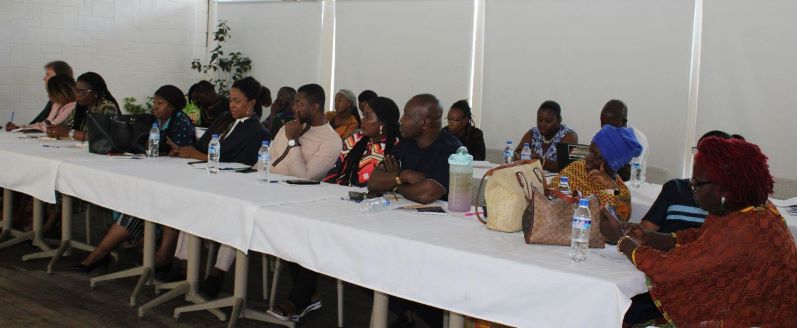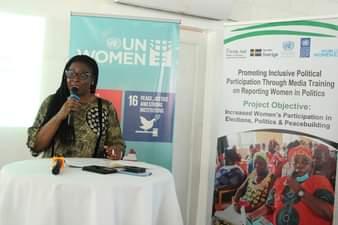By Alfred Kollie, alfredkolliejr92@gmail.com
As part of the celebration of International Women’s Day (IWD) and the March month of women, UN Women (UNW) in collaboration with the Center for Media Studies and Peacebuilding (CEMESP) has ended a day-long high-level panel discussion on Media’s critical role in promoting gender-responsive reporting during elections in the digital age.
UN Women is dedicated to gender equality and the empowerment of women globally, while CEMEST is a civil society organization working to promote democratic tenets through free media, freedom of expression, peace consolidation, and participatory governance.
This year, IWD is commemorated under the global theme “Digit ALL: Innovation and Technology for Gender Equality” and the national theme, “Innovating with technology to promote gender equality.

The event brought together women leaders and key media actors including managers of media institutions and editors. Representatives from the UN, government, and aspirants.
The day-long engagement placed a spotlight on systemic challenges in politics and electoral processes which hinder vulnerable groups in society.
Speaking at the one-day engagement last Thursday in Monrovia, UN Women Deputy Country Director, Ms. Yemi Falayajo, called on the media community to address the issue of gender discrimination and promote gender participation in politics.
Ms. Falayajo wants the media to take action that will help mitigate gender stereotypes of violence against women in politics.
She challenged the media in this digital age to play an important role as civil educators and serves as the voice of the public in promoting gender equality in the country.
“I urge you to provide platforms, topics, and programs for women candidates to effectively participate in elections and change the narrative, change the story. What story are you going to tell” She asked?

In remarks, the Executive Director of CEMESP, Mr. Malcolm W. Joseph, encouraged the media to take concrete steps to curtail the culture of gender inequality among members of the press.
“It is now time to start concrete awareness and collect experiences on gender in coverage. We must teach journalists to be aware that sexist media coverage contributes to the underrepresentation of women in politics,” Mr. Joseph noted.
Other representatives from the US and Swedish Embassies, and women media leaders also spoke.
The panelists, in their deliberations, called on journalists to end attacks, mocking, and discrediting of women in politics, and instead focus on their achievements and positive portrayals. They congratulated women media executives and motivated them to step up positive reportage of other women.
Despite Liberia producing Africa’s first female president and currently having a female vice president, women are still grossly underrepresented in the legislature. Women make up less than 11 percent of the 103 seats in the National Legislature. Out of 73 members in the House of Representatives, only nine (9) are women (12.3 percent) while there are only two women among the thirty (30) Senators (7 percent). Additionally, only 5 of 19 cabinet ministers, 24.5 percent of deputy minister positions, and 25.9 percent of assistant ministers are women.
In Liberia, several factors hinder women’s effective participation as citizens in governance and decision-making processes, and politics.
A few of the issues are the lack of enforceable temporary special measures, discriminatory norms, attitudes, and practices, including violence, and a lack of political will.
The media can play a key role by highlighting these major factors and issues.
While reporting on politics and elections, the media can put the spotlight on systemic challenges in politics and electoral processes which prevent not only women but also many other vulnerable groups in society.

